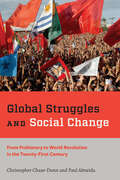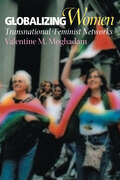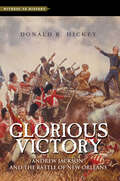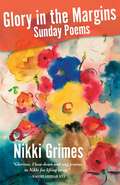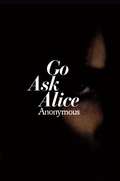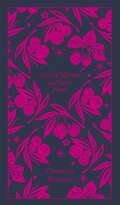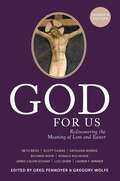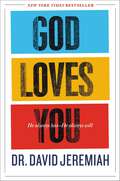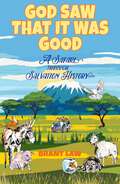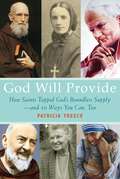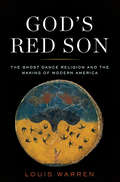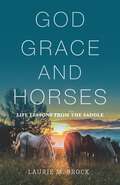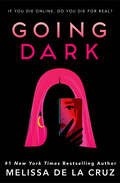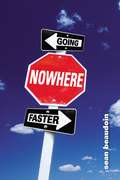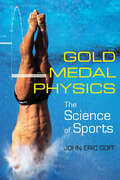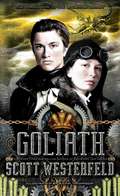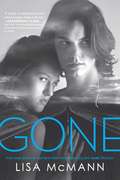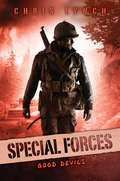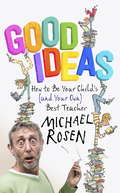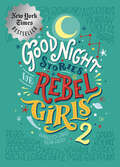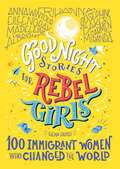- Table View
- List View
Global Struggles and Social Change: From Prehistory to World Revolution in the Twenty-First Century
by Paul Almeida Christopher Chase-DunnDeftly demonstrates how the rise and fall of social movements throughout history is closely linked to economic and political developments.In the early decades of the twenty-first century, an international movement to slow the pace of climate change mushroomed across the globe. The self-proclaimed Climate Justice movement urges immediate action to reduce carbon emissions and calls for the adoption of bold new policies to address global warming before irreversible and catastrophic damage threatens the habitability of the planet. On another front, since the 1980s, multiple waves of resistance have occurred around the world against the uneven transition from state-led development to the neoliberal globalization project. Both Climate Justice and Anti-Austerity movements represent the urgency of understanding how global change affects the ability of citizens around the world to mobilize and protect themselves from planetary warming and the loss of social protections granted in earlier eras.In Global Struggles and Social Change, Christopher Chase-Dunn and Paul Almeida explore how global change stimulates the formation and shape of such movements. Contending that large-scale economic shifts condition the pattern of social movement mobilizations around the world, the authors trace these trends back to premodern societies, revealing how severe disruptions of indigenous communities led to innovative collective actions throughout history. Drawing on historical case studies, world system and protest event analysis, and social networks, they also examine the influence of global change processes on local, national, and transnational social movements and explain how in turn these movements shape institutional shifts. Touching on hot-button topics, including global warming, immigrant rights protests, the rise of right-wing populism, and the 2008 financial crisis, the book also explores a broad range of premodern social movements from indigenous people in the Americas, Mesopotamia, and China. The authors pay special attention to periods of disruption and external threats, as well as the role of elites, emotions, charisma, and religion or spirituality in shaping protest movements. Providing sweeping coverage, Global Struggles and Social Change is perfect for students and anyone interested in globalization, international and comparative politics, political sociology, and communication studies.
Globalizing Women: Transnational Feminist Networks (Themes in Global Social Change)
by Valentine M. MoghadamWinner of the Victoria Schuck award given by the American Political Science Association and an Honorable Mention in the Distinguished Book Award given by the Political Economy of World Systems section of the American Sociological AssociationGlobalization may offer modern feminism its greatest opportunity and greatest challenge. Allowing communication and information exchange while also exacerbating economic and social inequalities, globalization has fostered the growth of transnational feminist networks (TFNs). These groups have used the Internet to build coalitions, lobby governments, and advance the goals of feminism.Globalizing Women explains how the negative and positive aspects of globalization have helped to create transnational networks of activists and organizations with common agendas. Sociologist Valentine M. Moghadam discusses six such feminist networks to analyze the organization, objectives, programs, and outcomes of these groups in their effort to improve conditions for women throughout the world. Moghadam also examines how "globalizing women" are responding to and resisting growing inequalities, the exploitation of female labor, and patriarchal fundamentalisms. This book is an important addition to literature exploring feminism as well as to the broader discussion of the impact of transnational social movements and organizations in the globalized world.
Glorious Victory: Andrew Jackson and the Battle of New Orleans (Witness to History)
by Donald R. HickeyThe story of the battle that saved New Orleans, made Andrew Jackson a hero for the ages, and shaped the American public memory of the war.Whether or not the United States "won" the war of 1812, two engagements that occurred toward the end of the conflict had an enormous influence on the development of American identity: the successful defenses of the cities of Baltimore and New Orleans. Both engagements bolstered national confidence and spoke to the élan of citizen soldiers and their militia officers. The Battle of New Orleans—perhaps because it punctuated the war, lent itself to frontier mythology, and involved the larger-than-life figure of Andrew Jackson—became especially important in popular memory. In Glorious Victory, leading War of 1812 scholar Donald R. Hickey recounts the New Orleans campaign and Jackson’s key role in the battle.Drawing on a lifetime of research, Hickey tells the story of America’s "forgotten conflict." He explains why the fragile young republic chose to challenge Great Britain, then a global power with a formidable navy. He also recounts the early campaigns of the war—William Hull’s ignominious surrender at Detroit in 1812; Oliver H. Perry’s remarkable victory on Lake Erie; and the demoralizing British raids in the Chesapeake that culminated in the burning of Washington. Tracing Jackson’s emergence as a leader in Tennessee and his extraordinary success as a military commander in the field, Hickey finds in Jackson a bundle of contradictions: an enemy of privilege who belonged to Tennessee’s ruling elite, a slaveholder who welcomed free blacks into his army, an Indian-hater who adopted a native orphan, and a general who lectured his superiors and sometimes ignored their orders while simultaneously demanding unquestioning obedience from his men. Aimed at students and the general public, Glorious Victory will reward readers with a clear understanding of Andrew Jackson’s role in the War of 1812 and his iconic place in the postwar era.
Glory in the Margins: Sunday Poems
by Nikki Grimes"Glory in the Margins is a gift and a challenge: a collection that could be well-worn by pastors and prisoners, could be healing in both a hospital room or busy auditorium, and could offer inspiration in both the quiet of personal devotion or a bustling sanctuary." —Dana VanderLugt, Reformed JournalNew York Times bestselling author and poet Nikki Grimes explains, "A study of scripture reveals that Jesus spent a lot of time with people in the margins. As an African American, I live in the margins, and I can tell you that it's a place most of us would rather not be. And yet, I know there is always glory to be found in the margins because of the Lord's presence in, and with us." "As Poet Laureate of my Grace Brethren Church in Southern California, it's my job to distill the heart of the weekly sermon into a poem. I dive into each week's chosen scripture, viewing it from my own perspective as Black, as woman, as poet, always a little left of center, and looking for the glory to be found in the margins of life, and of the text. Of course, those of us who live in the margins are not what anyone expects, and the very notion that God might speak through us, through me, may seem a bit wild. But he does. 'I will pour out my spirit on all flesh,' said the Lord. God's busy in the hearts of all who call on him."Glory in the Margins is published under Paraclete Press's Iron Pen imprint. In the book of Job, a suffering man pours out his anguish to his Maker. From the depths of his pain, he reveals a trust in God's goodness that is stronger than his despair, giving humanity some of the most beautiful and poetic verses of all time. Paraclete's Iron Pen imprint is inspired by this spirit of unvarnished honesty and tenacious hope.
Go Ask Alice (Anonymous Diaries)
by AnonymousA teen plunges into a downward spiral of addiction in this classic cautionary tale.January 24th After you&’ve had it, there isn't even life without drugs… It started when she was served a soft drink laced with LSD in a dangerous party game. Within months, she was hooked, trapped in a downward spiral that took her from her comfortable home and loving family to the mean streets of an unforgiving city. It was a journey that would rob her of her innocence, her youth—and ultimately her life. Read her diary. Enter her world. You will never forget her. For thirty-five years, the acclaimed, bestselling first-person account of a teenage girl&’s harrowing decent into the nightmarish world of drugs has left an indelible mark on generations of teen readers. As powerful—and as timely—today as ever, Go Ask Alice remains the definitive book on the horrors of addiction.
Go! with Microsoft Office 2016 Volume 1
by Shelley Gaskin Alicia Vargas Debra Geoghan Nancy GraviettTeach the course YOU want in LESS TIME! In today's fast-moving, mobile environment, the GO! with Office 2016 series focuses on the job skills needed to succeed in the workforce. For Office 2016, the hallmark guided-practice to skill-mastery pathway is better than ever. Students have many opportunities to work live in Microsoft office to apply the skills they've learned.
Goblin Market and Other Poems (Penguin Clothbound Poetry)
by Christina RossettiA collectible new Penguin Classics series: stunning, clothbound editions of ten favourite poets, which present each poet's most famous book of verse as it was originally published. Designed by the acclaimed Coralie Bickford-Smith and beautifully set, these slim, A format volumes are the ultimate gift editions for poetry lovers. Goblin Market and Other Poems was Christina Rossetti's first full volume of poetry, published in 1862. The collection received widespread critical praise and established Rossetti as the foremost female poet of her time. Tennyson, Hopkins and Swinburne all admired her work. The title poem 'Goblin Market' is arguably her most famous, a fairy tale entwining themes of sisterhood, temptation and sexuality. This collection also includes 'Up-hill', an allegorical dialogue on life and death and 'Maude Clare', a ballad of a woman scorned.
God For Us: Rediscovering the Meaning of Lent and Easter (Reader's Edition)
by Kathleen Norris Luci Shaw Ronald Rolheiser Richard Rohr Scott Cairns Lauren F. Winner Gregory Wolfe James Calvin Schaap Greg Pennoyer Beth BevisA daily devotional reader to guide lovers of the Word through the forty days of Lent and Easter, rich with spiritual insight from leading Catholic, Protestant, and Orthodox writersExplore the meaning of Lent, its importance in spiritual formation, its significance in the preparation for Easter, and throughout the holy season of Christ's Resurrection. Leading North American spiritual writers reflect on what one theologian has called the "bright sadness" of Lent: that it is not about feeling broken and lost, but about cleansing the palate so we can taste and live life more fully. During Lent and Easter, we encounter the God who in all of life is for us—for our liberation, for our healing, for our wholeness. Even in death we can find resurrection.In God For Us readers will find:- Daily readings with scriptures, meditations, and prayers, beautiful edited by Greg Pennoyer and Gregory Wolfe- One beloved spiritual writer featured each weekIntroduction: Fr. Ronald Rolheiser, OMIShrove Tuesday and the First Week of Lent: Richard Rohr, OFMSecond Week of Lent: Lauren F. WinnerThird Week of Lent: Scott CairnsFourth Week of Lent: James SchaapFifth Week of Lent: Luci ShawHoly Week and Easter: Kathleen Norris- Studies throughout the forty days on "The Feasts and Fasts of Lent" by Beth Bevis
God Loves You: He Always Has—He Always Will
by David JeremiahThat God loves us is the most profound truth in the universe. Experiencing this love has the potential to answer every question, solve every problem, and satisfy the deepest yearnings of the heart. So why are many people who believe this still unable to fully utilize the power of God's love in their personal lives?In this probing book, Dr. David Jeremiah reveals that not fully understanding and appreciating every critical dimension of God's love can lead to missed opportunities to experience His love. He explains how even the so-called negative dimension of God's actions--hell, prohibitive commandments, pain and suffering in the world--can only be rightly understood by viewing them in light of God's true love. GOD LOVES YOU will enable readers to know God in a way that will consciously connect them with the healing power of His grace so they can experience the life of love they were created to enjoy.
God Needed a Puppy
by John Gray Shanna BrickellEdgar the Owl and Freddy the Fox show readers of all ages how saying goodbye to a beloved animal does not mean saying goodbye forever.A portion of proceeds will be donated to animal shelters around the country. ---------- When John's puppy Samuel died unexpectedly at just six months old it brought a profound sadness to their home and a sense that this was just not fair. For the first time John understood how a child must feel when they lose a pet of any age, asking themselves, "Why?" Hoping to turn his pain into something positive, John put pen to paper and wrote a story to help any child who has lost a pet.In God Needed a Puppy John guides children through the grieving process by using friendly animals from the forest to explain the reasons why a beloved pet sometimes has to leave us. He reassures them that this "goodbye" is not forever and offers hope that other furry friends will someday come into their lives.
God Saw That It Was Good: A Safari Through Salvation History
by Brant LawThis book is a collection of some of the more famous and not so famous stories about animals in the Bible, the lives of Catholic saints, and instances in the author's own life. A sprinkling of theological reflection and biblical commentary helps us not only become more familiar with these amazing stories, but also appreciate how God sometimes uses his creation to draw us closer to him and help guide us to the life he wants us to live.
God Will Provide: How God's Bounty Opened to Saints and 9 Ways It Can Open for You, Too
by Patricia TreeceA specialist in human goodness and recent saints, Patricia Treece offers the fruits of years of research on how God meets the material needs, in varying ways, of his people. Mother Teresa of Calcutta, for instance, refused to let anyone raise money in her name, insisting if God wanted something done through her, he'd send the money. Other friends of God did seek donations and got them in amazing ways. Most intriguing of all, Treece found people living quietly anonymous lives secure in God's providence. From them she has learned to live that way, too. In this lively book she offers copious examples of ten universal principles to live by so you can join those who know, in good times or bad, God will provide.
God's Red Son: The Ghost Dance Religion and the Making of Modern America
by Louis S. WarrenIn 1890, on Indian reservations across the West, followers of a new religion danced in circles until they collapsed into trances. In an attempt to suppress this new faith, the US Army killed over two hundred Lakota Sioux at Wounded Knee Creek. Louis Warren's God's Red Son offers a startling new view of the religion known as the Ghost Dance, from its origins in the visions of a Northern Paiute named Wovoka to the tragedy in South Dakota. To this day, the Ghost Dance remains widely mischaracterized as a primitive and failed effort by Indian militants to resist American conquest and return to traditional ways. In fact, followers of the Ghost Dance sought to thrive in modern America by working for wages, farming the land, and educating their children, tenets that helped the religion endure for decades after Wounded Knee. God's Red Son powerfully reveals how Ghost Dance teachings helped Indians retain their identity and reshape the modern world.
God, Grace, and Horses: Life Lessons from the Saddle
by Laurie M. BrockFrom the beloved author of Horses Speak of God comes a warm and inspiring guide to the life lessons we can learn from horses Laurie Brock, Episcopal priest, messy Christian, and horse lover, shares the experiences of love, grief, humility, joy, and deep wisdom that she discovers day to day with horses. From barely-there trails in the Grand Tetons to muddy fields in the Kentucky Bluegrass, God is revealed in the simple ways of these magnificent creatures. For anyone feeling doubtful, distracted, or anxious in these challenging times, Laurie brings us back to center, reminding us to breathe, get back on the saddle, and move beyond the familiar into the freedom of something new.
Going Dark
by Melissa de la Cruz&“An intense rollercoaster of a thriller and a searing indictment of which victims get our attention and sympathy.&” –#1 New York Times bestselling author Marie LuIn this ripped-from-the-headlines Gone Girl meets A Good Girl's Guide to Murder, #1 New York Times bestselling author Melissa de la Cruz weaves a white-knuckle YA thriller about a beautiful young influencer who vanishes after going on vacation with her boyfriend. #WhereisAmeliaAshleyThe Influencer Amelia Ashley shares everything with her followers – her favorite hole-in-the-wall restaurants, her best fashion tips, and her European trip-of-a-lifetime with her hot boyfriend.The Boyfriend Josh has no choice but to return home without Amelia after she abandons him in Rome. He has no clue where she went or how her blood got in his suitcase. Why won&’t anyone believe him?The Hacker To Harper Delgado, Amelia Ashley is just another missing white girl whipping up a media frenzy. But with each digital knot she untangles about the influencer, Harper wonders: who is Amelia Ashley?The Other Girl Two years ago, another girl went missing, one who never made headlines or had a trending hashtag.The Truth Amelia&’s disappearance has captured the world&’s attention. What comes next? Watch this space…Told through a mixture of social media posts, diary entries, and firsthand accounts, Going Dark is a gripping, suspenseful thriller about all the missing girls who fall off the radar, perfect for true crime fans and readers of One of Us is Lying by Karen M. McManus.
Going Nowhere Faster
by Sean BeaudoinEveryone in town thought Stan was going to be something and go somewhere, but they're starting to realize that when this boy genius can't even get out of Happy Video, he's going nowhere, faster. But when things look like they're only getting worse, Stan is forced to decide what he wants to do with his life. Suddenly, he may be getting somewhere afterall. With sarcastic, dry wit reminiscent of David Sedaris and Tom Perrotta, this debut YA novel delivers with laugh-out-loud hilarity and a lot of heart.
Gold Medal Physics: The Science of Sports
by John Eric GoffNothing is quite as thrilling as watching superior athletes do the seemingly impossible. From Doug Flutie's "Hail Mary" pass to Lance Armstrong's record-breaking climb of Alp d'Huez to David Beckham's astounding ability to bend a soccer kick, we marvel and wonder, "How did they do that?" Well, physics professor John Eric Goff has the answers.This tour of the wide world of sports uses some of the most exhilarating feats in recent athletic history to make basic physics concepts accessible and fun. Goff discusses the science behind American football, soccer, cycling, skating, diving, long jumping, and a host of other competitive sports. Using elite athletes such as Greg Louganis and Bob Beamon as starting points, he explains in clear, lively language the basic physical properties involved in amazing and everyday athletic endeavors. Accompanied by illustrations and mathematical equations, each chapter builds on knowledge imparted in earlier portions of the book to provide a firm understanding of the concepts involved.Fun, witty, and imbued throughout with admiration for the simple beauty of physics, Gold Medal Physics is sure to inspire readers to think differently about the next sporting event they watch.
Goliath: Leviathan; Behemoth; Goliath (The Leviathan Trilogy #3)
by Scott WesterfeldThe riveting conclusion to Scott Westerfeld’s New York Times bestselling trilogy that’s “sure to become a classic” (School Library Journal).Alek and Deryn are on the last leg of their round-the-world quest to end World War I, reclaim Alek’s throne as prince of Austria, and finally fall in love. The first two objectives are complicated by the fact that their ship, the Leviathan, continues to detour farther away from the heart of the war (and crown). And the love thing would be a lot easier if Alek knew Deryn was a girl. (She has to pose as a boy in order to serve in the British Air Service.) And if they weren’t technically enemies. The tension thickens as the Leviathan steams toward New York City with a homicidal lunatic on board: Secrets suddenly unravel, characters reappear, and nothing is as it seems in this thunderous conclusion to Scott Westerfeld’s brilliant trilogy.
Gone (Wake #1)
by Lisa McMannThings should be great for Janie—she has graduated from high school and is spending her summer with Cabel, the guy she’s totally in love with. But deep down she’s panicking about how she’s going to survive her future when getting sucked into other people’s dreams is really starting to take its toll. Things get even more complicated when she meets her father for the very first time—and he’s in a coma. As Janie uncovers his secret past, she begins to realize that the choice thought she had has more dire consequences than she ever imagined.
Good Devils (Special Forces #3)
by Chris Lynch"All the sizzle, chaos, noise and scariness of war is clay in the hands of ace storyteller Lynch." -Kirkus Reviews for the World War II seriesThe First Special Service Force is an elite commando unit composed of American and Canadian troops. From the start, the Force is intended to go where other soldiers won't. The call for volunteers specifically singles out lumberjacks, hunters, prospectors, and game wardens as ideal candidates. And their training is anything but "basic," including intense lessons in parachuting, hand-to-hand combat, skiing, rock climbing, and adaptation to cold climates.One tight group of young men have made a point of carrying The Commando Pocket Manual with them everywhere. They build a unified little community around it, a text to guide them through the war.As this team travels through Germany, taking down Nazis as they go, they also carry calling cards to leave behind. The stickers read, in German, "The worst is yet to come."
Good Housekeeping Kids Bake!: 100+ Sweet and Savory Recipes - A Kids Baking Cookbook (Good Housekeeping Kids Cookbooks #2)
by Susan Westmoreland Good HousekeepingReady, set, BAKE! Featuring more than 100 simple triple-tested recipes, from Bacon Cheese Popovers to Peanut Butter Cup Cheesecake, this is the perfect book for young bakers! From fabulous muffins, breads, and pizzas to yummy cookies, cakes, and pies, Good Housekeeping has a world of treats for kids to bake! This delicious follow-up to Good Housekeeping Kids Cook! teaches children baking terminology and techniques such as using the right pan, measuring accurately, choosing ingredients, and, of course, safety in the kitchen. The classic kid-approved recipes—all mouthwatering, fail-proof, and shown in gorgeous photographs—offer both sweet and savory options. So, heat up the oven and start making treats like a Classic Margherita Pizza, Spanakopita, Spicy Beef Pies, Double Chocolate Chip Cookies, Glazed Cinnamon Rolls, and holiday favorites such as Thumbprint Jammers, Crunchy Candy Canes, and Hanukkah Squares.Whether you&’re a brand-new baker or a pro, this book is the perfect companion!
Good Housekeeping Kids Cook!: 100+ Super Easy Kids Recipes (Good Housekeeping Kids Cookbooks #1)
by Susan Westmoreland Good HousekeepingTomato Soup with Cupid Croutons. A Meatball-Mozzarella Pizza. Homemade Fudgy Ice-Cream Sandwiches. Good Housekeeping&’s fun-to-make (and eat!) recipes will appeal to every kid. With aspiring young chefs showing off their skills on Chopped Junior and Food Network Star Kids, it&’s clear that kids CAN cook and LOVE to cook! Now, Good Housekeeping has created the perfect cookbook for kids of all ages who are eager to step in the kitchen. It features more than 100 delicious, fail-safe recipes, accompanied by colorful photographs and basic kitchen and cooking how-tos. Prepare tempting fare like mac &‘n&’ cheese, lasagna, salads, smoothies, burgers, cakes, and more! And when children want to whip up something for their friends and family, they&’ll find variations that make every dish super-special.
Good Ideas: How to Be Your Child's (and Your Own) Best Teacher
by Michael RosenWe live in a world surrounded by all the stuff that education is supposed to be about: machines, bodies, languages, cities, votes, mountains, energy, movement, plays, food, liquids, collisions, protests, stones, windows. But the way we've been taught often excludes all sorts of practical ways of finding out about ideas, knowledge and culture - anything from cooking to fixing loo cisterns, from dance to model making, from collecting leaves to playing 'Who am I?'. The great thing is that you really can use everything around you to learn more.Learning should be much more fun and former children's laureate, million-selling author, broadcaster, father of five and all-round national treasure, Michael Rosen wants to show you how. Forget lists, passing tests and ticking boxes, the world outside the classroom can't be contained within the limits of any kind of curriculum - and it's all the better for it. Long car journeys, poems about farting, cake baking, even shouting at the TV can teach lessons that will last a lifetime. Packed with enough practical tips, stories and games to inspire a legion of anxious parents and bored children, Good Ideas shows that the best kind of education really does start at home.
Good Night Stories for Rebel Girls 2 (Good Night Stories for Rebel Girls #2)
by Elena Favilli Francesca Cavallo Rebel GirlsA NEW YORK TIMES BESTSELLERThis sequel to the sensational New York Times bestseller, Good Night Stories for Rebel Girls, showcases 100 brand-new bedtime stories of incredible women throughout history and around the world.In this book, readers will embark on an empowering journey through 100 new bedtime stories, featuring the adventures of extraordinary women through the ages, such as:Agatha Christie, WriterAngela Merkel, ChancellorAudrey Hepburn, ActressBeyoncé, Singer, Songwriter, and BusinesswomanGeorgia O'Keeffe, PainterKatherine Johnson, Computer ScientistMadam C. J. Walker, BusinesswomanMadonna, Singer, Songwriter, and BusinesswomanOprah Winfrey, TV Host, Actress, and BusinesswomanSojourner Truth, ActivistThe unique narrative style of Good Night Stories for Rebel Girls transforms each biography into a fairytale, filling readers with wonder and a burning curiosity to know more about each hero.After the release of Good Night Stories for Rebel Girls, the passionate community of supporters, spanning 70+ countries, wrote in to suggest the Rebel Girls who inspired them. As a result, the stories in Volume 2 are entirely crowd-sourced and boasts a brand-new graphic design, a glossary, and full-page, full-color portraits of each subject, created by the best female artists of our time.
Good Night Stories for Rebel Girls: 100 Immigrant Women Who Changed the World (Good Night Stories for Rebel Girls #3)
by Elena Favilli Rebel GirlsA 2021 NATIONAL PARENTING PRODUCT AWARDS WINNER!The third installment in the New York Times bestselling Good Night Stories for Rebel Girls series, featuring 100 immigrant women who have shaped, and will continue to shape, our world.Good Night Stories for Rebel Girls: 100 Immigrant Women Who Changed the World is packed with 100 all-new bedtime stories about the lives of incredible female figures from the past and the present such as:Anna Wintour, Editor in ChiefCarmen Miranda, Singer and ActressDiane von Fürstenberg, Fashion DesignerGloria Estefan, SingerIlhan Omar, PoliticianJosephine Baker, Entertainer and ActivistLupita Nyong'o, ActressMadeleine Albright, PoliticianRihanna, Entrepreneur and SingerSamantha Power, DiplomatThis volume recognizes women who left their birth countries for a multitude of reasons: some for new opportunities, some out of necessity.Readers will whip up a plate with Asma Khan, strategize global affairs alongside Madeleine Albright, venture into business with Rihanna, and many more. All of these unique, yet relatable stories are accompanied by gorgeous, full-page, full-color portraits, illustrated by 70 female and nonbinary artists from 29 countries across the globe.
